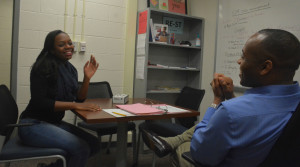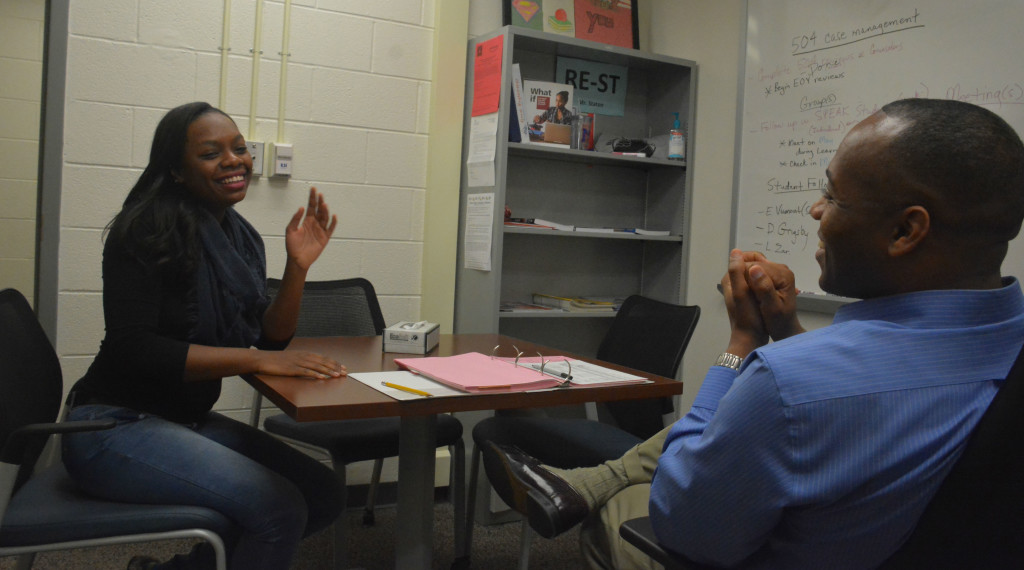
Counselors have more to their job than guiding in course selection; they write college recommendation letters, develop programs to help students be well rounded and deal with academic and emotional crises.
“The main thing counselors do is that we serve as student advocates,” counselor Miriam Filvarof said. “We make sure that they’re able to learn and a lot goes into that. We help with social, emotional and academic concerns. We’re the liaison between students, parents and teachers.”
However, students are still appreciative of the work the counselors put in when selecting courses.
“My counselor is really helpful in helping me switch classes around to make the schedule fit me,” sophomore Leah Peterson said.
One misconception junior and senior counselor Christy Close Hanlon often hears around the school is that counselors do nothing except work on their computers throughout the workday.
“[Sitting at my desk all day] is definitely a myth,” Close Hanlon said. “Instead of sending passes for students and waiting, we’ll go and take a list and for a full 90 minutes we’ll be walking around and pulling students out and talking to them in the hallway.”
According to Filvarof, speaking with and building relationships with students is one of the best parts about being a counselor.
“We’re in this profession because we love working with students, and building relationships with them is really awesome,” freshman and sophomore counselor Brian Staton said.
However, Staton has another favorite part of his job; Staton is a representative on the Vertical Leadership Team, an organization that works with the counselors from feeder elementary and middle schools to improve upon their comprehensive counseling program.
“I love being able to serve on the Vertical Leadership Team,” Staton said. “I feel as though we have opportunities to build our leadership team and skills working in this department. It allows me to grow as a professional.”
The difficulties high school counselors face vary from those faced in other professions, such as retail, with the issues being more emotion-based.
“This may be more personal but the misconception that I don’t know what’s going on with a student and I’m not doing anything about it,” Close Hanlon said. “That’s never the case, the idea that I’m not doing anything.”
Counselors also deal with being unaware of how they impact the lives of clients that have graduated.
“The most difficult thing personally is that often times the work we do doesn’t impact students until after they leave us,” Filvarof said. “If you do this job you have to be okay with knowing that a decision you make might positively affect a student, and they won’t realize it until a few years down the road, and you’ll never know.”

